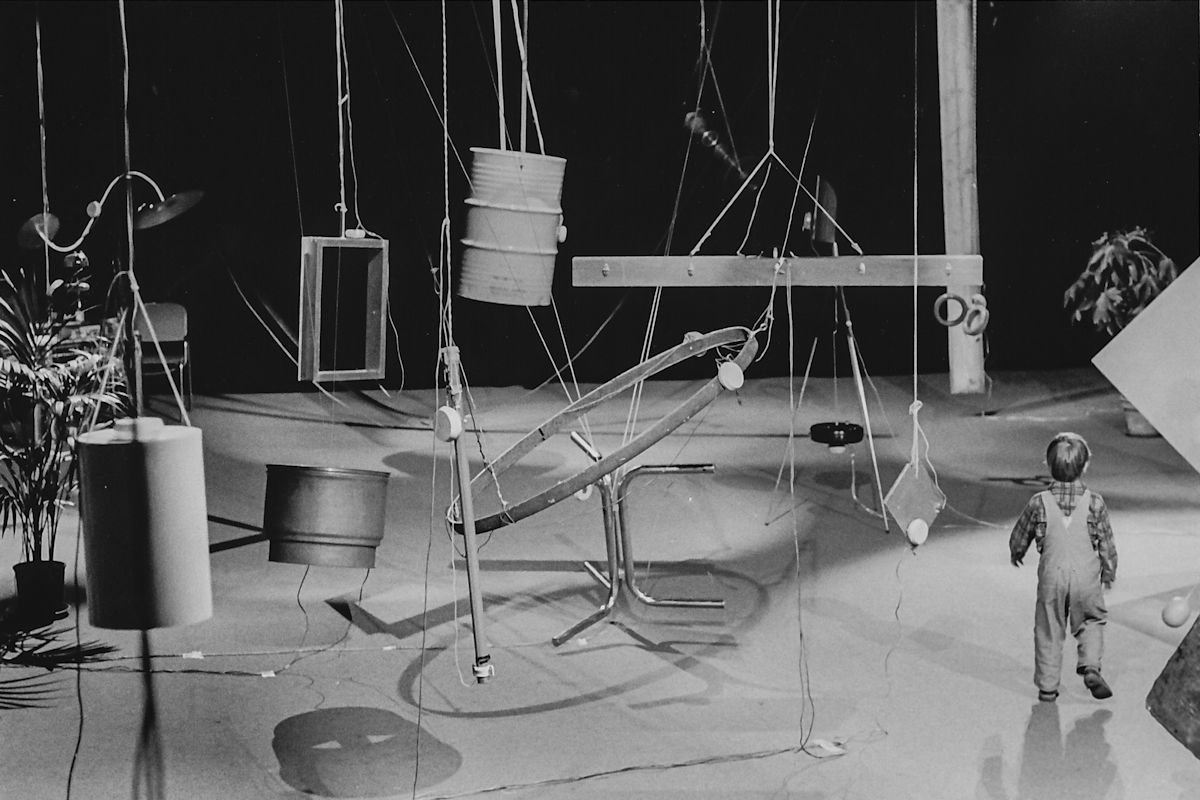Music was not an invention of human civilizations: it was a «revelation,» an «encounter.» Because it was discovered by man among the sounds of the world: he recognized it as a faceless deity, a sacred and ancestral spirit. Music has no body. Sound is its illusion of corporeity, a fleeting and subtle vibration that moves in expansive waves: music becomes present in a kind of absence, remaining unapproachable, like a perfume, like a dream. Sound, the sonorous character of music—its physical aspect—, is a vital illusion that seduces us, a secret code, a decoy. And it is primarily a vehicle, a tool through which it manifests itself. Sound is to music what the body is to the soul. But it is fundamental to note that sound is a body both physical and ethereal—physical because it’s a perceptible aspect of vibration, and ethereal because it carries matterless energy.
We are used to thinking that we only hear sounds—the acoustic spectrum—when we listen to music. And we talk about sounds, remember and analyze sounds, typified with names of notes, names of chords, numbers of frequencies and simple or elaborate musical forms. But the truth is that music is hidden behind the sounds. Music is, paradoxically, absence from itself and this paradox turns around all possible conceptualization.
Although we usually think of music as an artform, that is just one aspect of the phenomenon. Because music is not only manifested through musicians and/or musical instruments. Cage and the avant-garde talked sharply about it. Who hasn’t heard majestic natural symphonies in the rain? Or elaborate and sophisticated connections and coincidences among random sounds? Who hasn’t reveled in the myriad of sonatas in the songs, howls and bellows of birds, mammals, cetaceans, and insects? Or those powerful hypnotic rhythms generated by the great machineries of the Industrial Age? And conversely, how many times hasn’t it happened that we perceive some musical piece or song simply as noise? Or even pieces or interpretations of pieces, so lacking in life and spirit, that instead of music are heard as simple sterile sounds? We may also ask ourselves how many times it has happened that something that seemed simple incomprehensible noise to us, under different circumstances we manage to appreciate it as music and vice versa. Music can be anywhere, it’s a mission of consciousness to find it.
Humanity uses music, just as it has used earth, water, air and fire. But music made by men, the techniques developed to make it, are like bonfires in which fire seems to have been controlled, or mills in which we manipulate water, small gardens on which we impose the order that our will dictates. Of all that, we have the technique to make bonfires, the engineering of mills and the wisdom of gardening; but neither fire, nor water, nor earth, nor air belongs to us—they are unfathomable. Exactly the same thing happens with music. All the technical development that we have deployed over millennia belongs to us; it belongs to us because it is an expression of ourselves. But music as a phenomenon goes far beyond us. It is not limited only to human activities—they have merely given it various forms of manifestation. Beyond any age, aesthetic, fashion, or trend, the impulse of music does not come from man himself. It is an elemental impulse or force of nature, whose emanations depend on invisible cosmic cycles. Or perhaps I should say that the impulse of music comes from «the unconscious,» or at any rate, that it is an impulse external to consciousness, in which humans participate as a prism of perception and refraction; and that it is in such participation that the musical miracle shines indeed.
The world sounds constantly, but no sound comes from nothing: it’s always directly related to something that produces it, because sound is the acoustic projection of the objects and elements of everything that exists; it’s one of the material masks of reality. Homo sapiens was soon able to recognize—like his animal brothers—the different sounds of each thing and neurologically associate the sound with that which produces it. But the perception of music is quite another thing. Sound by itself is not music, it’s just the acoustic evidence of the movement of things. The sounds we recognize as music are primarily an «outer» experience, they are something that happens «outside» in the objective world—specifically, in the acoustic frequencies of the world. Actually, «outside» there are only those sounds and noises, but if consciousness captures certain patterns in those sounds and manages to read in them an order, a harmony, a coincidence, and manages to decipher them as a hieroglyph, these sounds will stop being only acoustic objects and will become the infinite miracle of Music, with all its subjective ramifications and objective practical possibilities.
Like the ability to conceive images, musical perception is a flash of consciousness. What makes any sound a musical experience is not necessarily the intention of the one producing the sound, but of the one who listens to it and assimilates it. Sound occurs in the world, and the image is also a product of events and external spaces perceived by our senses; but in themselves, image and music take place in the luminous spark of consciousness, there where all art is produced, every imagined thing; where all ideas are cooked, where memory is revived and feelings are interwoven. Consciousness is the axis mundi, the central axis of the cosmos par excellence. We are not speaking of the public as a social phenomenon, nor about the listener as a phenomenological object, but of consciousness itself as a cosmic space.
It’s in the «inside» of consciousness, in the cosmic spark of consciousness of the listener, where music really occurs, where those sounds unfold beyond the acoustic. Therefore, the essence of the musical experience is actually strictly subjective, individual, incommunicable, and non-transferable. Because it is the listener who serves as a vessel, container or filter, in which music finally comes together and is processed as an experience. Consciousness, its individual and unique point of perception, is the stage where music finally manifests itself, like an alchemical operation in which music must be «distilled» through humanity. And the resonances ―internal and external, individual and collective―of that experience are susceptible to carrying with it the possibility of transforming everything completely. Because music is fleeting but forceful, it is a lightning bolt that at the moment of its rumble also briefly illuminates the face of the earth. Music transforms landscapes, enters through the cracks of emotions, gives sense to the souls and configures different cultures.

Whenever music—understood as an art form, as cultural expression—enters a process of crisis, there is always a disjunction about the difference between music and simple sound—or noise. As if it were necessary to constantly define the boundaries between the acoustic phenomenon of sound and the spiritual—or immaterial—phenomenon of music. It is always a matter of a perceptional shift in the assimilation of the acoustic information. What differentiates the perception of sounds in general from the perception of music is that sound points unequivocally towards the objects that produce it, whereas music always points in multiple directions. Music overflows the phenomenon of sound and transcends it. While listening to music the mind generates images, memories, sensations and thoughts that do not necessarily have a direct relation with the objects or instruments that produce it. It can be a symphony, a pop song, the song of a bird, noises from some electronic device, or simply the sound of the sea or the rain. When sound ceases to be only a reference and projection of the object and is traversed by «the musical,» a distinct presence in the sound is immediately noticed which stops being only a reference and becomes an independent phenomenon, bulged with an immaterial beyond. But this is an accomplishment of consciousness.
As art and craft, music is mainly a phenomenon that unfolds over time. And not only does it unfold and sustain itself over time, but it also manages to manipulate it and transform it in such a way that it shows with great forcefulness its absolute relativity. In fact, music is not governed by the precise and rigorous pace of the clock, instead, it has many tempi and pulses through which to articulate. Music sublimates the passage of time, transcends it, breaks it down, stretches it even out of itself, achieving a metaphysical miracle: it evidences the timelessness of time. Even after listening to music, it continues to resonate in memory and some of its essence is revealed and maintained in a timeless way. But not only is music concerned with the transfiguration of time, it also manages to reduce the dimensions of space and express them in its own acoustic dimension. For music contains within itself height, width and depth—deployed in height, movement and harmony—, and possesses the properties of texture, color, and weight—coming to express the multiple qualitative, intensive and extensive properties of phenomena.
Therefore, it is not an exaggeration to say that music has the extraordinary power to acoustically «transcend» reality, generating with minimum or no matter—vibratory waves—a new, more subtle and elevated dimension where infinite possibilities of reality can be experienced. Music is the sublimation of the physical spectrum of the world, the transmutation and elevation of the space-time in which we live.
The curious thing is that, although music is a fundamental catalyst of humanity and is present in an important way in all cultures, the human brain did not develop a «musical center» to manage the neurological networks destined to the act of listening or playing music. To enable the development of our musical abilities, the brain must make use of and summon the participation of at least twelve different neurological systems developed for other purposes. Man literally manages to reconstruct music within himself using many different parts of his brain. For music was not created by men, we have simply learned to relate to it. Perhaps for this reason, music seems totally ungraspable. It is very much ours, but at the same time, it is a great otherness. As with symbols, music allows an approach through insurmountable distancing. As Schopenhauer wrote: «Music expresses the quintessence of life, its events, but never these in themselves.» And we should add that, precisely, music expresses nothing but the quintessence of itself, on which we project the quintessence of life, events, and so on; that is, we project ourselves. Therefore, music has always been a «beyond» within us, an exceedance, a fall and an original ascent, an initiatory mystery, an alchemical bacchanal, a spell of transformation, a physical and spiritual healing ritual, a return to origins, a longing for communion with the All. Music redeems the weight of existence because, with its apparent lightness, it seems to transcend reality and make it more complete without explaining it rationally. Like Mercury (the light-footed god), music is also a mediator, a messenger, a linker, and therefore redeeming.
Music is a living force, a natural element like water; it is an essential, extraterrestrial entity that does not belong entirely to this world. It dialogues directly with our physical and emotional body, but also manages to establish information exchange with our unconscious—both individual and collective—and with the spheres of the mental: it envelops us as if speaking directly to our souls. It seems to manifest from an archetypal reality, because its essence is unfathomable, indefinable, inexhaustible—not as a Platonic idea of which all music is an inaccurate copy, but seen as a living element of nature, of which all music is a manifestation without ever being able to fully encompass it as a phenomenon. Just as all the fires are fire—paraphrasing Cortázar–, we can say that all music is music. And that music seeks to vibrate, to flow, to transcend. Therefore, even if stuck or clumsily manipulated, it is still an experience full of irreducible meanings and experiences. Even among today’s commercial junk, where music is banalized and forced to be superficial, and even in music made by the worst of musicians, or the worst interpreted music: even there, the living and eternal spirit of Music shines and breathes, configuring reality with its vibration—perhaps not necessarily as aesthetic fruition, but as an inexplicable phenomenon of existence. A single melodic phrase, a rhythmic intention, even a single chord or single note is enough to make music vibrate and open up other dimensional spaces. Musicians, from the earliest Orpheus on earth to the most modern, are acoustic resonators who «tune» or «detune» with their music the vibrations that shape the dynamics of their time.
About the Author:
Andrés Levell (Caracas, 1983) is a Venezuelan composer, pianist, and writer. He has produced music for different orchestral and instrumental formats and has also devoted himself to improvisation as a form of spontaneous composition. He has received several awards, scholarships, and recognitions. His scores have been interpreted by important orchestras and groups, as well as outstanding soloists and conductors, both national and international. As a writer, he is the author of the book Apuntes sobre la decapitación y otros textos [Notes on Decapitation and Other Texts] (2008), which was awarded the II National University Literary Prize in the category of Essay. Since 2008, he is part of the experimental music group El Sagrado Familión.

















